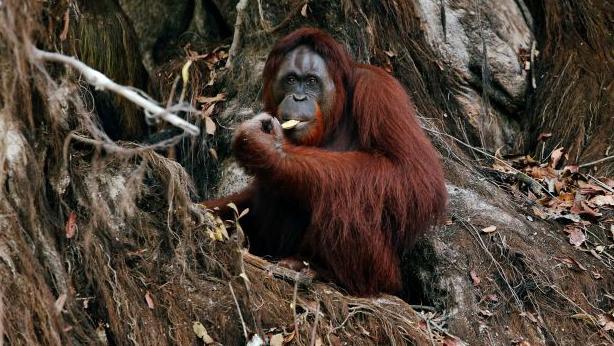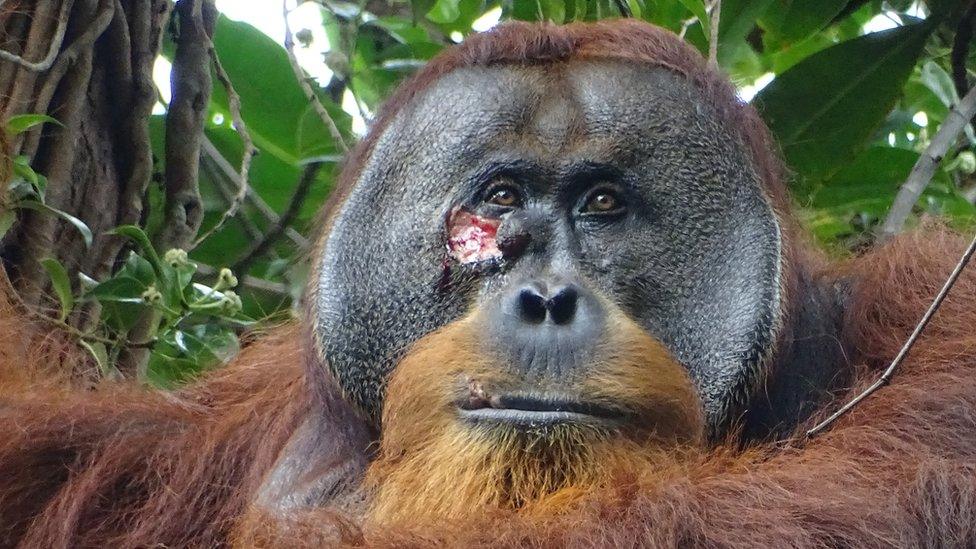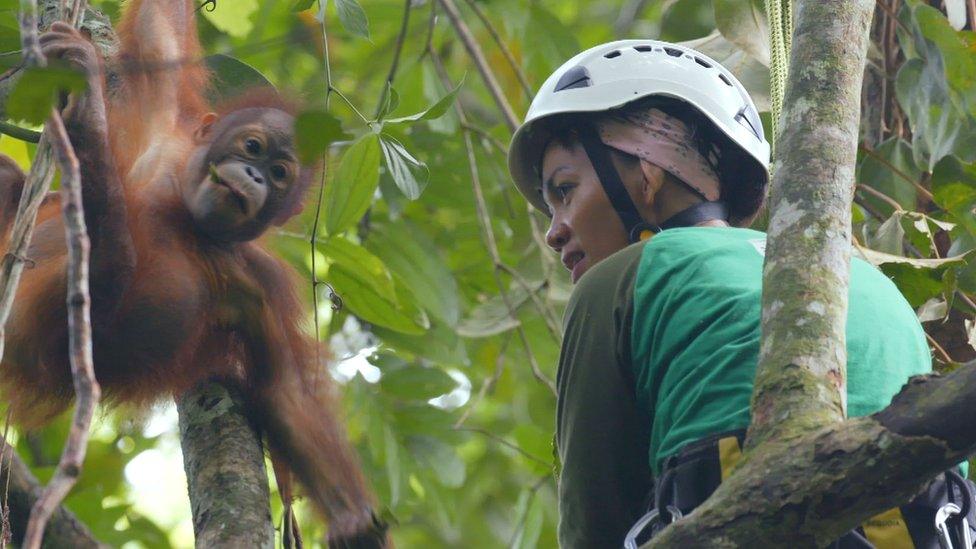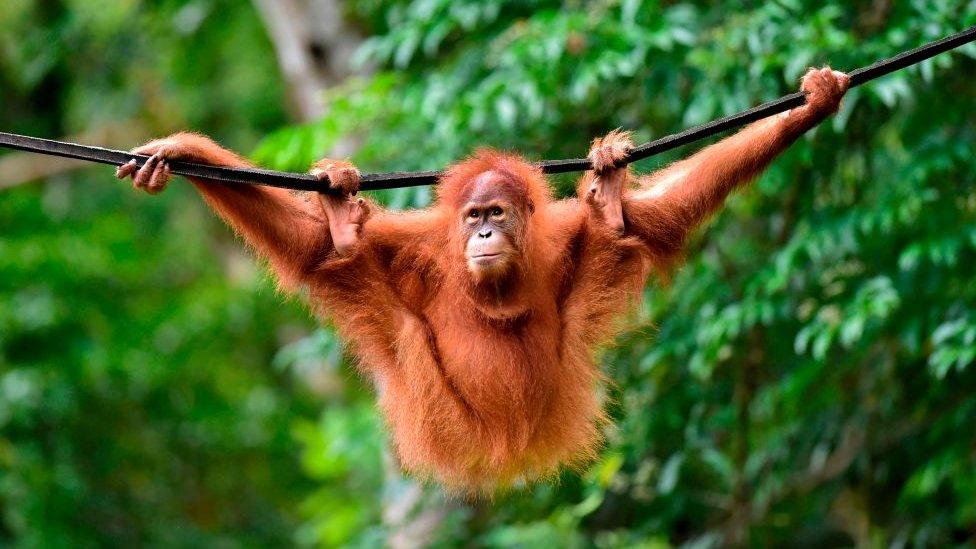Malaysia offers trade partners 'orangutan diplomacy'

Orangutans are native to the islands of Borneo and Sumatra
- Published
Malaysia has said it plans to start giving orangutans as gifts to major trading partners who buy its palm oil.
Commodities Minister Johari Abdul Ghani said the country hoped to generate the same goodwill as China does with its "panda diplomacy".
But conservation group WWF said the focus should be on protecting orangutans in their natural habitat.
The large apes, which are native to Malaysia and Indonesia, are a critically endangered species as logging and agricultural expansion - particularly for palm oil plantations - are blamed for the shrinking of the natural rainforests where they live.
With a name meaning "man of the forest", there are around 105,000 orangutans on the island of Borneo and a few thousand on Sumatra, WWF says.
Mr Johari said major importers of palm oil such as China, India and the European Union would be offered the apes as gifts.
"This will prove to the global community that Malaysia is committed to biodiversity conservation," he said on X.
"Malaysia cannot take a defensive approach to the issue of palm oil. Instead we need to show the countries of the world that Malaysia is a sustainable palm oil producer and is committed to protecting forests and environmental sustainability."
The move is being seen as a goodwill gesture to convince those countries that Malaysia is serious about developing its economy, and a token of its desire to keep this endangered species alive.
But conservation groups have voiced concerns about the plan.
"WWF supports in-situ conservation of wildlife, and would urge that trading partners are brought to Malaysia to support this initiative, as opposed to sending orangutans out of the country," it said in a statement quoted by Reuters.
And Justice for Wildlife Malaysia told the agency the plan required more research and urged the government to consider alternative diplomatic measures.
Palm oil is used in a wide range of products - foods such as chocolate and margarine, as well as cosmetics and soap.
It is very efficient to grow, but thrives in tropical areas. Its spread has led to the destruction of natural rainforest, and plantations are often described as green deserts because they have none of the biodiversity of the forests they replaced.
Watch: Wild orangutan treats his own wounds
- Published2 May 2024

- Published28 June 2023

- Published17 May 2020

- Published15 December 2020
